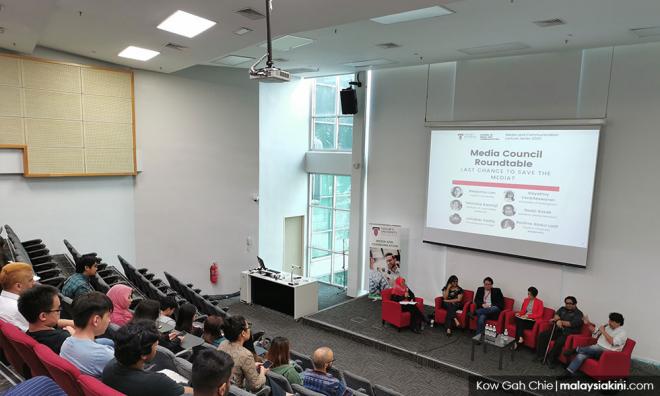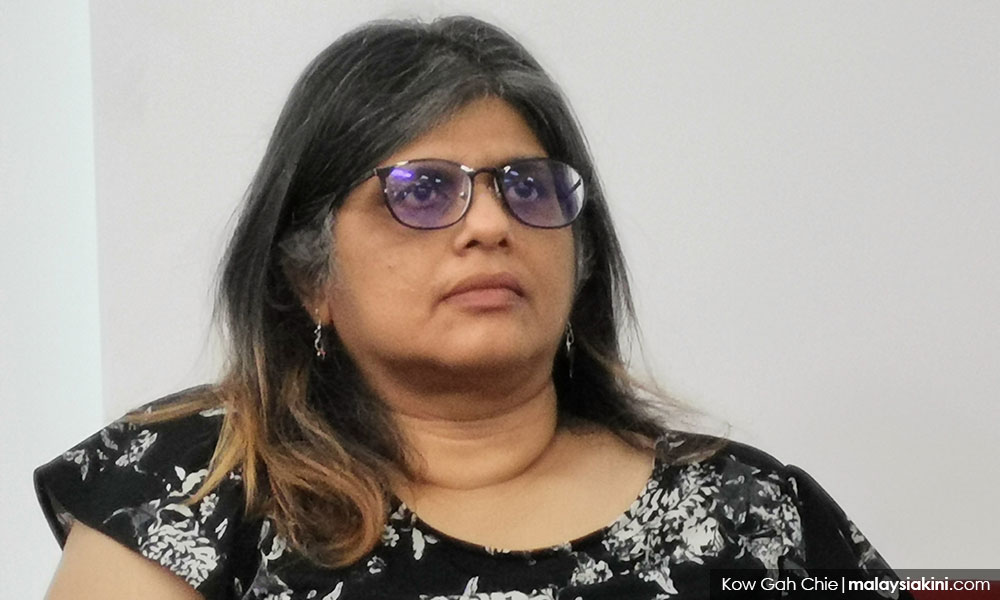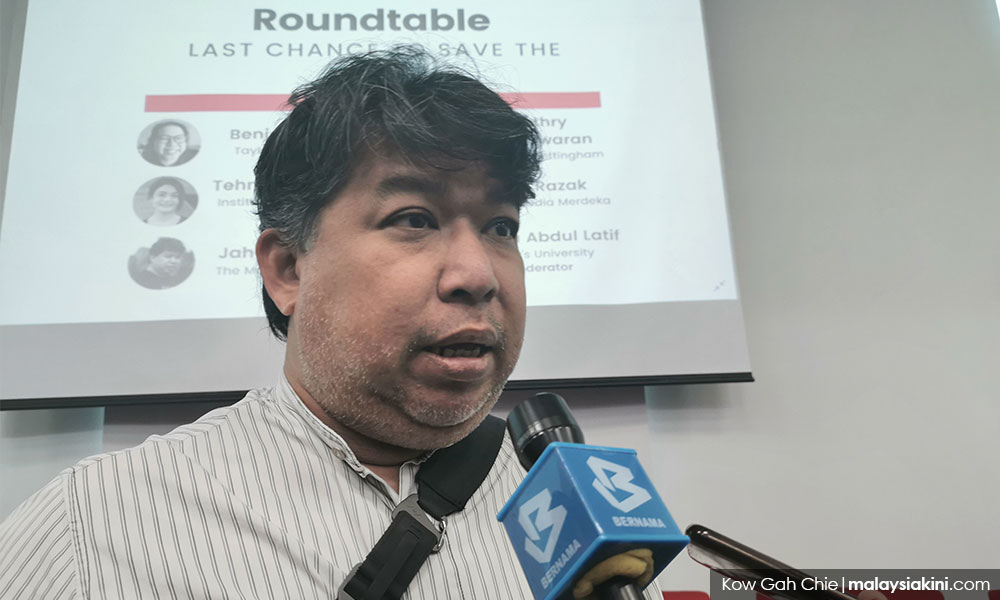
Academics and journalists raised concern that some media have lost their direction in the Malaysia Baru era as issues related to marginalised groups and individuals are being sensationalised.
Speaking at a roundtable discussion yesterday, academic V Gayathry said this could be due to certain economic condition, issues of identity, ethnicity and religion.
"If you look at what is happening post-2018, I think some individuals are aggressively targeted by media reports because it conforms to this broader idea of what is your right identity and therefore you had made a wrong choice," said the assistant professor of the School of Media, Languages and Cultures, University of Nottingham.
She was speaking at the "Media Council Roundtable: Last Chance to Save the Media?", a discussion held in Petaling Jaya.
"Another level of problem with the media is how they have reported individuals and groups that are not in power," said Gayathry (below), citing the news on the transgender entrepreneur and singer, Nur Sajat, as well as the public caning issues.

Sajat drew flak after wearing female prayer attire while in Mecca and posting it on Instagram, which caused unease among Muslims.
Minister in the Prime Minister's Department Mujahid Yusof Rawa had urged the Malaysian Communications and Multimedia Commission (MCMC) to probe Sajat for her social media postings.
Gayathry noted that such reports were not the focus of the media before.
Journalists Alliance founding member Tehmina Kaoosji agreed that the reports on Sajat were the legacy of certain narratives from top-down in the past decades.
She also highlighted the hate speeches after the controversial Malaysia Tatoo Expo 2019 and the probe ordered by Tourism, Arts and Culture Ministry.
Apart from raising on how the media carried their reports, Tehmina also urged the readers to be analytical in choosing the information that reaches them.
"I think we have equal responsibility when it comes to not perpetuating this (situation)," she said.

Earlier, The Malaysian Insight editor Jahabar Sadiq (photo) said the new government no longer controls the media unlike what happened during Dr Mahathir Mohamad's first stint as the premier, where officers from the Prime Minister's Office (PMO) would call up media personnel to tell them how news should be reported.
According to him, after returning to power, Mahathir has not mellowed down or became a changed person but that the nonagenarian no longer believes in media delivering his message.
"The day of the government controlling you directly or indirectly is over," he said.
"There is no more representative of the government in any newsroom. There is no minister vetting through the news. This is no longer the way now. (But) all the mainstream media is lost," he said.
Also present were panellists Radzi Razak, a coordinator at Gerak Media Merdeka, Benjamin Loh, senior lecturer at the School of Media and Communication, Taylor’s University, and moderator Roslina Abdul Latif, an associate professor of School of Media and Communication, Taylor’s University. - Mkini



No comments:
Post a Comment
Note: Only a member of this blog may post a comment.